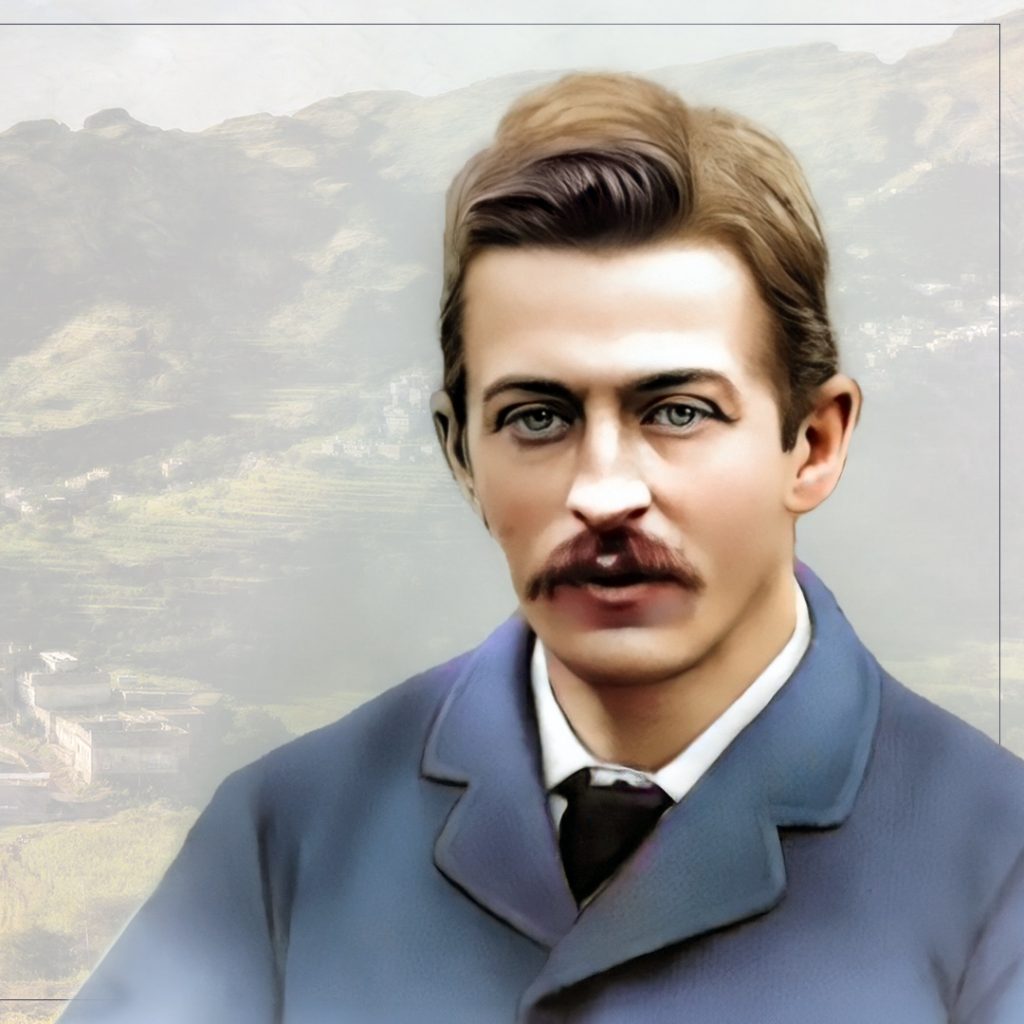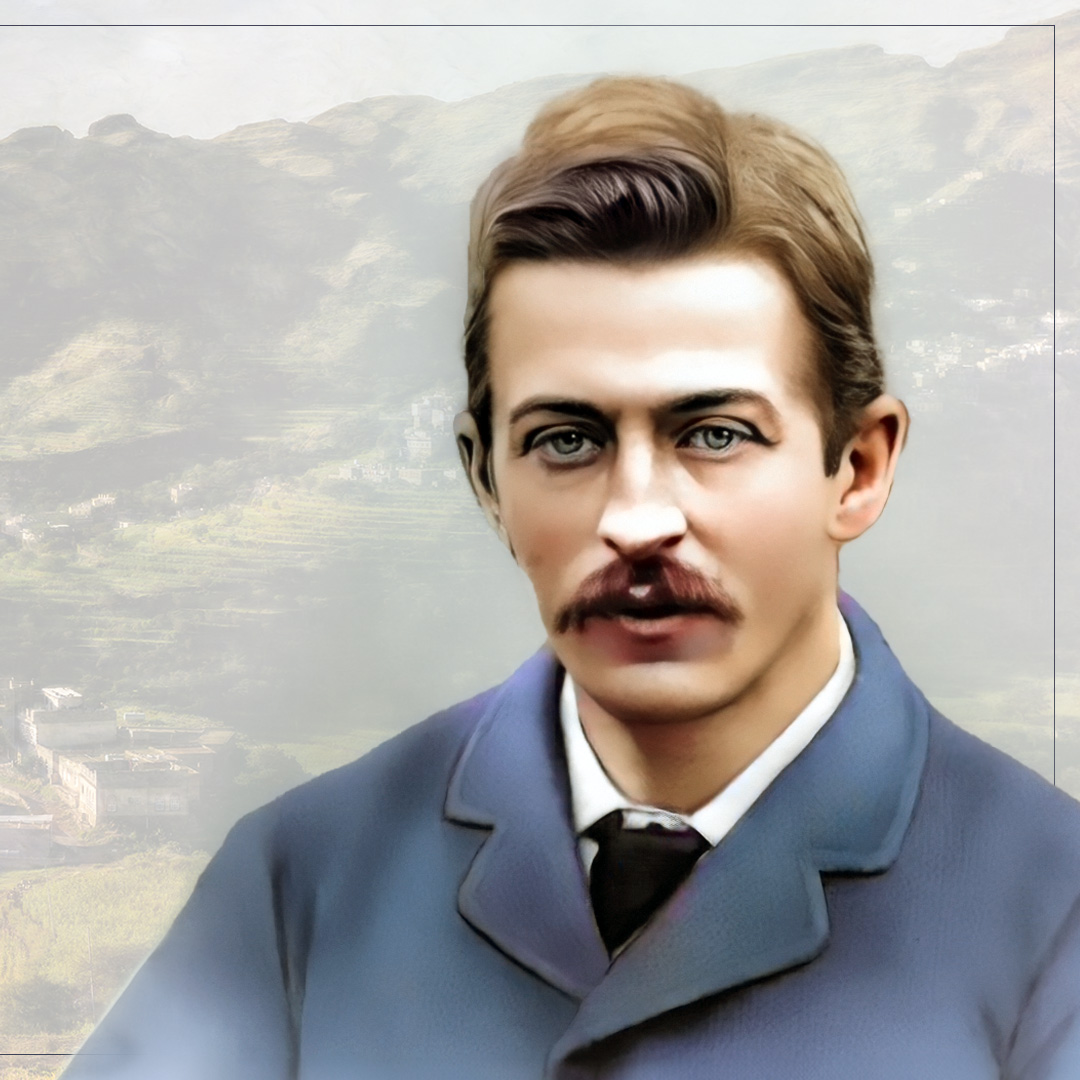
Ion Keith-Falconer: Missionary of Arabia
- - A Noble Lineage and Family 00:00
- - Childhood, School and College 00:00
- - A Champion Cyclist 00:00
- - Practical Christianity 00:00
- - Studies in Germany and Egypt 00:00
- - A Vocation Found 00:00
- - A Winter In Aden 00:00
- - A Strenuous Summer 00:00
- - Leaving Cambridge For The Last Time 00:00
- - The Shanty 00:00
- - Medical Work 00:00
- - A Struggle With Fever 00:00
- - A Noble Example 00:00
- - He Being Dead Yet Speaketh 00:00
James Robson closes his story of this immortal life of Ion Keith-Falconer with the words: “He died at just Henry Martyn’s age” in his 31st year and like him devoting his life for the sake of winning the Muslims. The work at Sheikh Othman which he laid down his life to found, was taken up by loyal hands. “Being dead, he yet speaketh.”
The following is an excerpt from chapter 14:
In the beginning of 1921 the medical work of the mission was restarted, and since then it has been carried on energetically, the large numbers of people who visit the hospital showing that the help which they receive there is greatly appreciated. They come to the hospital from Aden, Sheikh Othman, the surrounding villages, and from places far distant. They are of different races, and of many tribes; the Somali, the Indian, the Parsi, the Jew, mingle with the Aden Arab, the Arab of Yemen, or even at times the Arab of Muscat or of Mecca, as they come to the hospital for treatment. Some days the doctor may have more than a hundred new cases to deal with, besides people who come back for treatment, in-patients who occupy the wards in the upper storeys of the hospital or the outhouses in the compound, and those who call him in to see them in their homes. Many are the operations which are performed, of which stone and hernia cases are the most common. The number of those who come with eye troubles is legion. One of the most recent developments is the treatment of lepers, who live in a hut removed from the others. The blind see, the lame walk, the lepers are cleansed, the deaf hear. To the poor the Gospel is preached.
Religious teaching goes hand-in-hand with the other activities of the mission. The school begins every morning with a Bible lesson: the out-patients and those of the in-patients who are able to move are gathered together for a short service before the doctor sees them. The congregation at these services is composed of people of different religions and different stages of intelligence, many of whom are suffering from loathsome diseases. As they sit in the verandah of the hospital they listen to the story of Him who could heal all diseases, who said: “Him that cometh unto Me I will in no wise cast out.” After the service, while the patients are waiting to see the doctor, Scripture portions are exhibited for sale among them at the very nominal prices which the British and Foreign Bible Society charge for those books which they produce. Most of the people cannot read, and yet a surprising number of portions are sold, for occasionally men who cannot read themselves have sons who can, so they buy a book. Scriptures have been sold in Arabic, Hebrew, Arabic in Hebrew characters, Gujarati, Urdu and English, and some of them have been carried far inland. Arabic Scriptures have been bought by men from Mecca, Muscat and many parts of Yemen; two local Sultans have bought complete Bibles; and Jews from Yemen have taken New Testament portions into the interior. One day a young Jew spent all the money he had with him on New Testament portions in Hebrew, with the intention of taking them back to his village in Yemen and selling them there at a profit. No objection was made to this: it was a method of getting the Gospel into a district where the missionary is not allowed to go. Sometimes Scriptures have been sold in the streets of Sheikh Othman with success, but this is not a regular practice, as the necessary time (and energy) are not always available. One of the most useful sides of this work is that it frequently gives one an opportunity of speaking to individuals about religious matters, a very valuable form of service.
During the years since the mission was started there have been very few converts, but there have been some. Work among Muslims is very hard, because they are satisfied with their religion and hold that it is superior to ours; but the work goes on, and the endeavor is made to win the people for Christ.
All this work is directly due to the self- sacrificing labor of Ion Keith-Falconer, who is still remembered by some of the older people, who when they were boys were accustomed to receive sweets from him. His name is commemorated in the title of the mission, which is called the “Keith-Falconer Mission” and in that of the United Free Church at Steamer Point called the Keith-Falconer Memorial Church. Yet there is no better way in which his name could be commemorated than by a strenuous endeavor to win the people of South Arabia for whom he gave his life.
One happy day, Mohammad’s Crescent will yield and disappear before Christ’s Cross; and, when this day dawns, the young scholar, whose torch seemed to be stifled and extinguished far too speedily among the Arabian sands, will be counted among those who have brought about the glad consummation.
“And there is not one of us to whom the joyousness of his Christianity should not be a pattern and an inspiration.”

